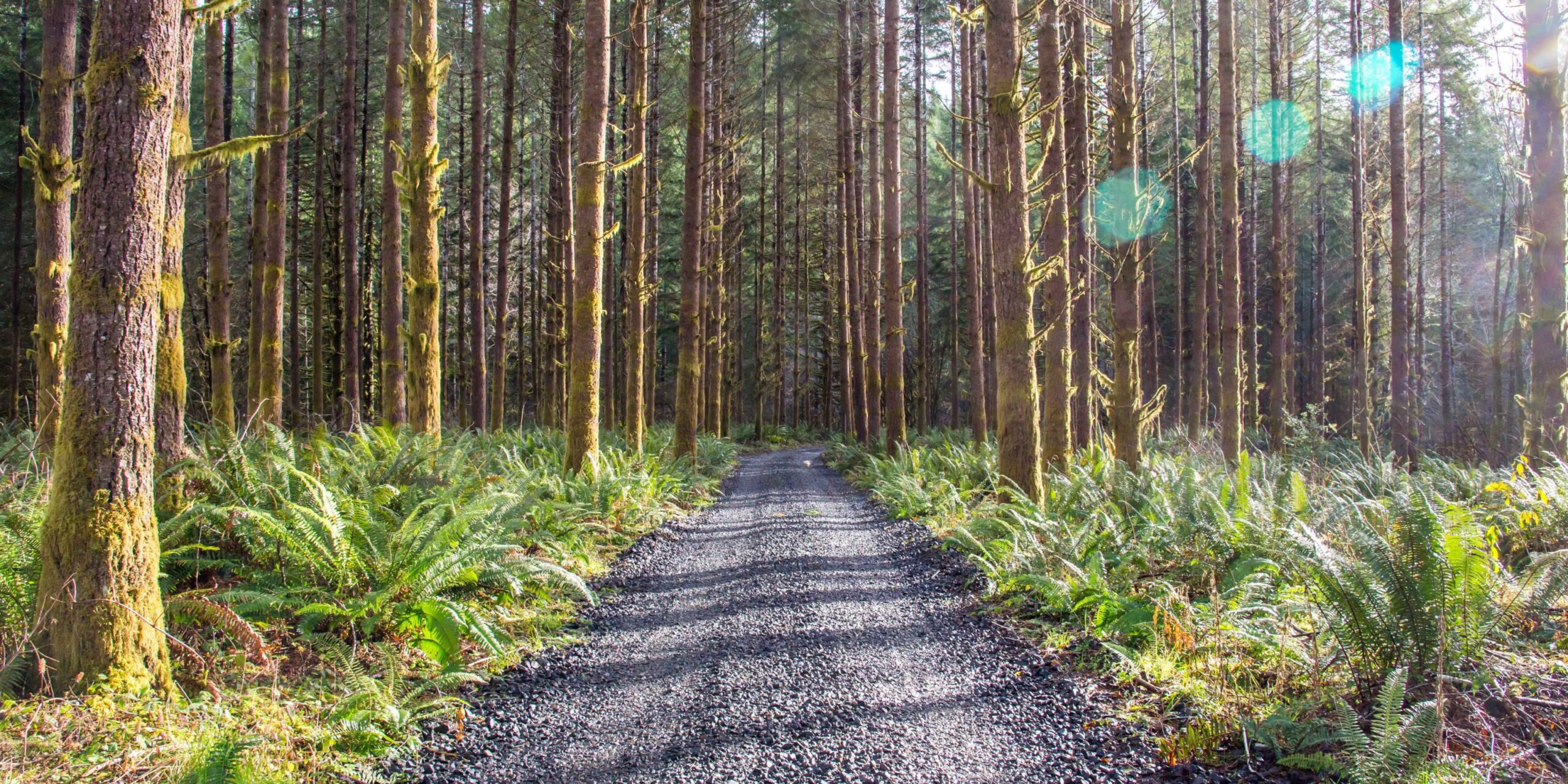
Work. Play. Renew.
“As Oregonians, we can all help to improve our environment”
We’re continuing our series of voices from those who live and work in the forests with this letter from Neil Schroeder. Neil owns forest property and and says the love of their forests has passed on through the generations. Here’s what forests mean to him:

Both of my grandparents were involved in early logging in Oregon and my grandparents’ house was built with rough lumber produced by a rudimentary mill. As a child, I played in the streams and caught trout and crawfish and discovered fresh water clams. My father taught Dendrology, the scientific study of trees, at Oregon State School of Forestry and my mother was an amateur horticulturist.
The love of our forests has passed on through the generations. Our two children are now teaching their children the joys and values of what grows and lives in the forests. Our son’s family now carefully guards the locations for the best mushroom hunting and they know the names and flavors of several species. Our daughter and husband are now building trails and thinning the young trees on property that my father and I and my siblings planted to conifers in the mid 1950’s. Our daughter and son-in-law have installed a Valley Ponderosa floor throughout the second floor of their home, manufactured from trees that I helped plant.
It’s also important to me that our forests are sources of clean water. They provide a service of retaining water until needed. Healthy forests improve fish habitat, provide clean air, improve soils, and sequester global warming carbon dioxide.
I appreciate that our state has been a national leader with the Oregon Forest Practices Act, which sets reasonable and beneficial rules for forest land owners. This law ensures healthy forest for the future. All forest land owners must scarify and prepare the soil so young seedlings will grow. We must purchase appropriate seedlings and plant them at the appropriate time of year and then monitor their growth. We must also thin and kill the weeds and non-native competition so the trees will flourish.
Not everyone honors the land, as I believe we do. Some take what they think belongs to all without leaving it in better condition than they found it. I was on a tour once were the state foresters took us to a “target shooting site” in the coast range. One stump had been shot at so much that the heat generated by the bullets caused a fire which cost several hundred thousand dollars to control. The land around the shooting site was littered with spent shells, shell casings and garbage from lunches, etc. The cleanup expense went to the state and therefore to the public.
As Oregonians, we can all help to improve our environment. We can think before we act when we are in the woods. We can help protect and improve those sites we visit. We can ask for reasonable taxes and regulations which improve the quality of our trees and our woodlands.
Neil Schroeder